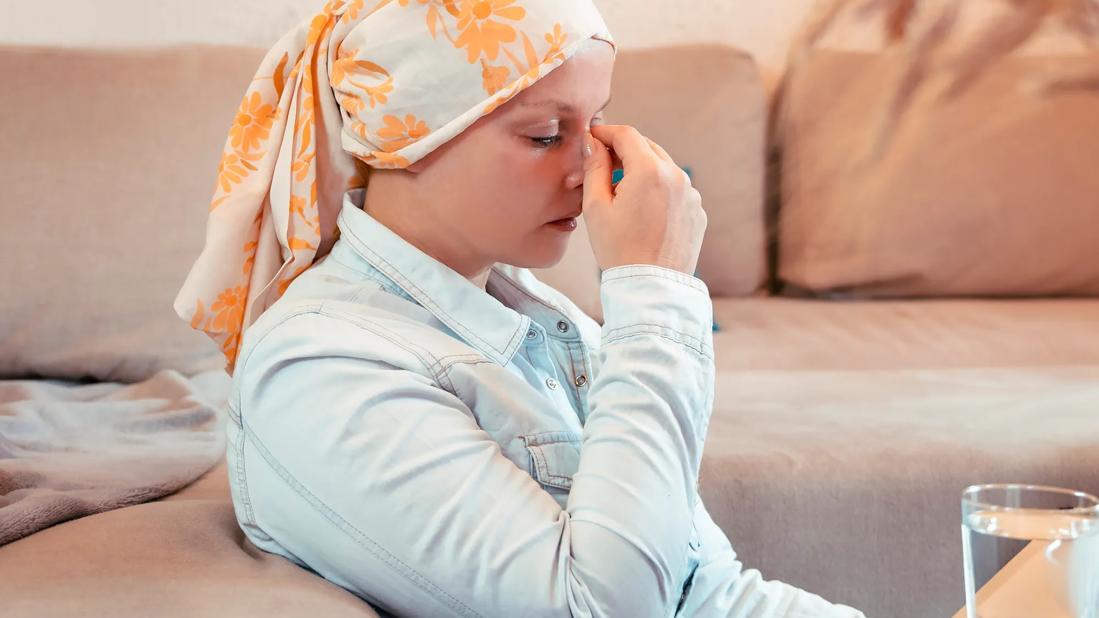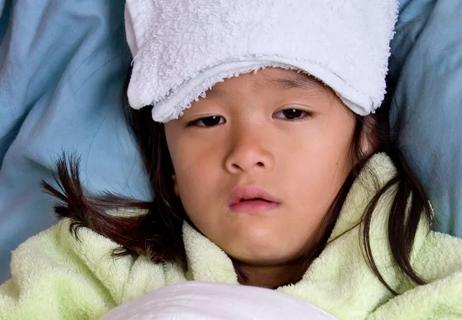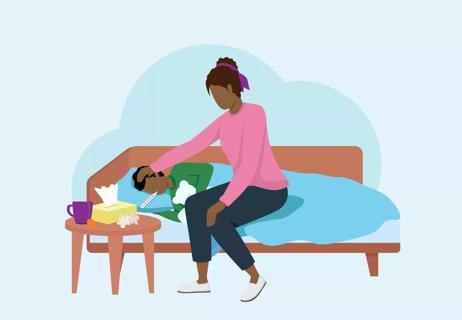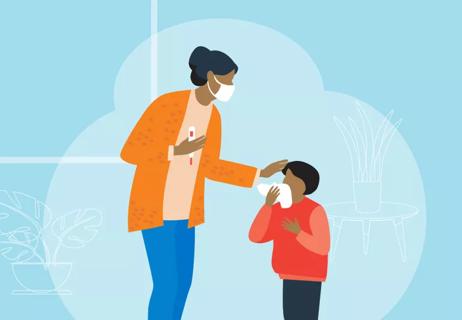Any fever, especially one of 100.5 degrees Fahrenheit or higher, should trigger a call to your oncologist — and maybe a trip to the ER

A fever may not send most people to the doctor’s office. But if you have cancer, it should never be ignored.
Advertisement
Cleveland Clinic is a non-profit academic medical center. Advertising on our site helps support our mission. We do not endorse non-Cleveland Clinic products or services. Policy
Emergency medicine physician Thomas Waters, MD, explains why you should take the symptom seriously and when it calls for a trip to the emergency room.
Cancer itself compromises your immune system — and cancer treatments do, too. That makes it harder for your body to recover from illnesses, even those that are common. Sometimes, those illnesses can even be life-threatening.
Cancer treatments (and some types of cancers themselves, like leukemia) often cause neutropenia, a lower-than-normal amount of a type of white blood cell called neutrophils.
“These white blood cells help your body fight infections,” Dr. Waters explains. “So, when your count is low from chemotherapy, your body has a harder time fighting off potential infections.”
There’s even a name for the type of fever you develop when you’re undergoing cancer treatment: neutropenic fever.
About 5% to 25% of people undergoing chemotherapy develop neutropenic fever at some point during their treatment — the more aggressive the chemo is, the higher the risk. Other factors can raise your risk, too, like your age and other underlying illnesses.
When you’re undergoing cancer treatment, it’s important to know the symptoms that could signify an infection. They include:
Advertisement
Before you had cancer, you might’ve waited out these symptoms with a little rest, hydration and chicken noodle soup. But now, any possible signs of infection should prompt you to call your oncologist ASAP.
“You should always call your oncologist immediately about a fever, especially if it reaches 100.5 degrees Fahrenheit (38 degrees Celsius) or higher,” Dr. Waters stresses. “Your provider will determine whether you should see them or go directly to an emergency room.”
If your oncologist instructs you to head to the ER, be sure to clearly tell hospital staff that you’re undergoing cancer treatment. This will make a difference in how they triage and treat you compared to someone without cancer.
“A healthy person with a fever and cough might get a flu swab or throat swab or a chest X-ray. We may give them acetaminophen and send them home to rest,” Dr. Waters illustrates. “But someone who has cancer and is showing the same symptoms will need a more intense evaluation to find the source of their infection.”
Hospital providers will test your blood and urine to check for bacteria. During this time, you’ll likely be kept in isolation (away from other patients) to make sure you’re not exposed to any new infections.
“To keep you safe, we’ll start you on antibiotics right away until we identify the cause of the fever,” he continues. “And if we find that you don’t have an infection, we can always stop the antibiotics later.”
If you have cancer and develop a fever, it’s important to seek medical attention right away.
Typically, you should start by asking for guidance from your oncologist. But if you’re feeling really bad — or can’t get a hold of your oncologist quickly — head to the emergency department right away and let your provider’s office know you’re on the way.
“There’s no way to quantify how bad you should feel before you seek help,” Dr. Waters notes. “If you feel like you need to be seen, you should come in. It’s always best not to risk it.”
Advertisement
Learn more about our editorial process.
Advertisement

A combination of rest, fluids and over-the-counter medications can help you feel better fast

When your body is fighting infection, your internal temperature rises as a defensive response

Most cases are mild and can be treated at home, but some situations may require medical care or a trip to the ER

It can cause alcohol poisoning and other serious health issues, especially in kids

It’s important not to give them fever-reducing medications right off the bat

Is it just a passing chill or something more serious?

What you need to know about these common misconceptions

The tropical fruit is a good source of antioxidants and vitamin C

Most people fall asleep within 10 to 20 minutes, but if your experience is different, adjusting your sleep schedule may help

Exploring your hidden side can lead to better understanding of what makes you tick